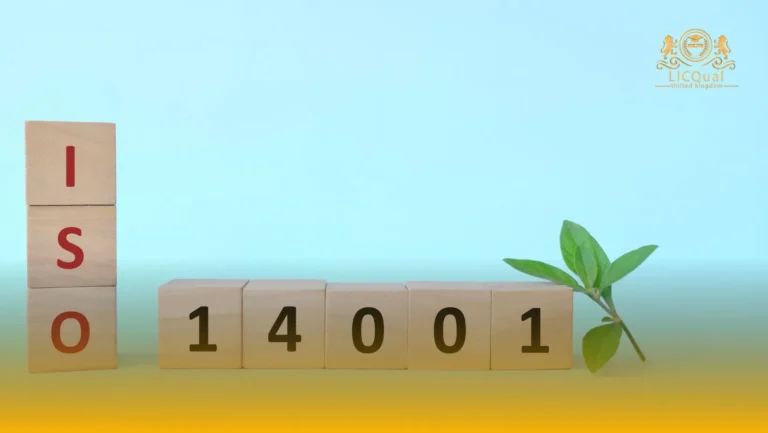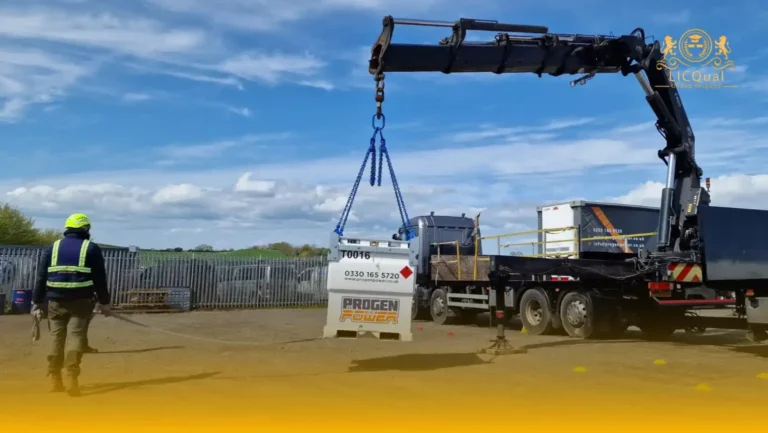In today’s fast-paced, quality-driven world, laboratories play a crucial role in ensuring products, services, and processes meet the required standards. To maintain credibility and trust, testing and calibration laboratories need to implement robust management systems. The LICQual ISO/IEC 17025:2017 Testing and Calibration Laboratories Lead Implementer course provides the expertise and knowledge required to lead the implementation of these standards, ensuring laboratories meet the highest levels of quality.
ISO/IEC 17025:2017 is the international standard for testing and calibration laboratories. It specifies the general requirements for the competence, impartiality, and consistent operation of laboratories. This standard is essential for laboratories to demonstrate that they can produce accurate and reliable test results. It is globally recognised and ensures that laboratories operate within a well-defined framework, maintaining consistent performance across all facets of their work.
For any testing or calibration laboratory, implementing ISO/IEC 17025:2017 is crucial for ensuring that testing and calibration activities meet the highest standards of quality and reliability. By adhering to this standard, laboratories gain the ability to improve their operational processes, enhance efficiency, and provide their clients with results they can trust. The certification not only helps laboratories gain the confidence of customers but also facilitates global recognition.
The role of a Lead Implementer in the context of ISO/IEC 17025:2017 is pivotal. These professionals are responsible for leading the process of developing, implementing, and maintaining the management systems that meet the standard’s requirements. As a Lead Implementer, individuals take on a leadership role, driving continuous improvement within the laboratory while ensuring compliance with the ISO/IEC 17025:2017 guidelines.
The LICQual ISO/IEC 17025:2017 Testing and Calibration Laboratories Lead Implementer course provides a comprehensive approach to mastering the complexities of laboratory management systems. By equipping professionals with the knowledge and skills necessary to implement and maintain ISO/IEC 17025:2017, the course helps laboratories achieve operational excellence and global recognition. Whether you’re a laboratory manager, quality professional, or consultant, becoming a Lead Implementer will empower you to drive sustainable improvements in laboratory operations and enhance the quality of testing and calibration services.
Course Overview
Qualification Title
LICQual ISO/IEC 17025:2017 Testing and Calibration Laboratories Lead Implementer
Total Units
6
Total Credits
40
GLH
120
Qualification #
LICQ2200132
Qualification Specification
To enrol in the LICQual ISO 26000:2010 Social Responsibility Lead Implementer course, applicants should meet the following criteria:
- A basic understanding of quality management systems (QMS).
- Prior experience in a laboratory or testing environment is advantageous.
- Knowledge of ISO standards, particularly ISO 9001, would be beneficial.
- Familiarity with testing and calibration processes is recommended.
- Strong analytical and problem-solving skills.
- Proficiency in reading, writing, and understanding technical documentation.
|
Qualification# |
Unit Title |
Credits |
GLH |
|---|---|---|---|
|
LICQ2200132-1 |
Introduction to ISO/IEC 17025 |
6 |
20 |
|
LICQ2200132-2 |
Management Requirements |
6 |
20 |
|
LICQ2200132-3 |
Technical Requirements |
6 |
20 |
|
LICQ2200132-4 |
Quality System Implementation |
6 |
20 |
|
LICQ2200132-5 LICQ2200132-6 |
Internal Auditing Documentation and Record Keeping |
8 8 |
20 20 |
By the end of this course, learners will be able to:
- Introduction to ISO/IEC 17025
- Understand the purpose, scope, and structure of ISO/IEC 17025:2017.
- Recognize the importance of ISO/IEC 17025 in the context of testing and calibration laboratories.
- Appreciate the role of ISO/IEC 17025 in ensuring the competence and consistency of laboratory activities.
- Management Requirements
- Identify key management requirements for ISO/IEC 17025, such as organizational structure and record-keeping.
- Understand document control procedures and the management review process.
- Learn how to develop and implement effective management processes that meet ISO/IEC 17025 standards.
- Technical Requirements
- Understand the technical competencies required for laboratory personnel, including calibration and maintenance of equipment.
- Learn about measurement traceability, and how to apply proper test and calibration methods in accordance with ISO/IEC 17025.
- Recognize the importance of ensuring technical accuracy and competence within the laboratory.
- Quality System Implementation
- Develop and implement a quality management system (QMS) in alignment with ISO/IEC 17025.
- Establish quality policies, procedures, and controls to ensure laboratory competence.
- Monitor and ensure continuous improvement in testing and calibration activities.
- Internal Auditing
- Learn how to plan and conduct internal audits of the laboratory’s QMS.
- Understand how to identify areas for improvement and ensure compliance with ISO/IEC 17025.
- Develop skills for documenting audit findings and implementing corrective actions.
- Management Review
- Facilitate management reviews of the QMS to assess performance and make improvements.
- Learn to identify improvement opportunities and make decisions to enhance laboratory operations and customer satisfaction.
- Understand the role of management review in ensuring continual improvement and compliance with ISO/IEC 17025.
This diploma is ideal for:
- Laboratory Managers: Responsible for overseeing laboratory operations, ensuring compliance with quality standards, and driving continuous improvement in testing and calibration activities.
- Quality Managers: Managing quality assurance and quality control functions within laboratories, seeking to implement and maintain ISO/IEC 17025-compliant quality management systems.
- Technical Managers: Overseeing technical aspects of testing and calibration activities, including method validation, equipment calibration, and measurement uncertainty assessment.
- Quality Assurance Officers: Ensuring compliance with ISO/IEC 17025 requirements, conducting internal audits, and facilitating management reviews to improve laboratory performance and customer satisfaction.
- Laboratory Technicians: Conducting testing and calibration activities, following established procedures, and maintaining accurate records and documentation to ensure the quality and reliability of test results.
Assessment and Verification
All units within this qualification are subject to internal assessment by the approved centre and external verification by LICQual. The qualification follows a criterion-referenced assessment approach, ensuring that learners meet all specified learning outcomes.
To achieve a ‘Pass’ in any unit, learners must provide valid, sufficient, and authentic evidence demonstrating their attainment of all learning outcomes and compliance with the prescribed assessment criteria. The Assessor is responsible for evaluating the evidence and determining whether the learner has successfully met the required standards.
Assessors must maintain a clear and comprehensive audit trail, documenting the basis for their assessment decisions to ensure transparency, consistency, and compliance with quality assurance requirements.







